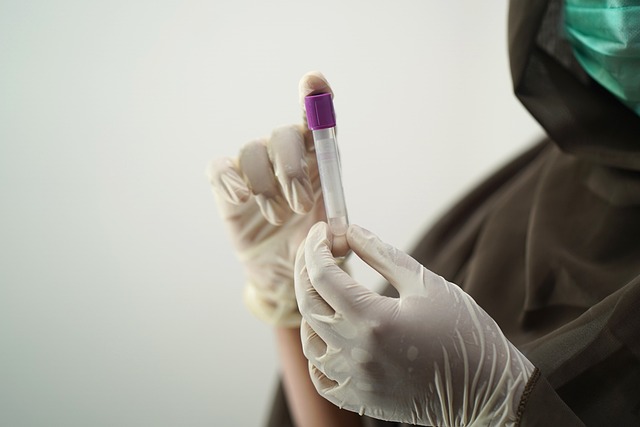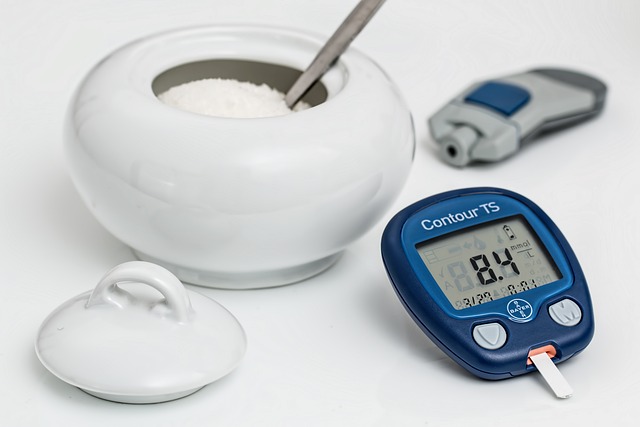The UK Standard Liver Blood Test is essential for evaluating liver function and its indirect effect on testosterone levels in males. This test includes measurements of bilirubin, albumin, liver enzymes like ALT and AST, which are crucial indicators of liver health and can influence hormonal balance, including testosterone production. Elevated liver enzymes or abnormal levels of bilirubin and albumin may signal potential issues that could affect testosterone synthesis in the Leydig cells of the testes. The test is a critical component of early detection and management of conditions such as hypogonadism and testosterone deficiency syndrome (TDDS), enabling healthcare providers to initiate timely interventions to support male health and quality of life within the UK healthcare system. It is a foundational diagnostic tool that, when used alongside clinical evaluations, helps in developing personalized treatment plans for men with suspected endocrine disorders. The comprehensive assessment of testosterone levels, considering diurnal variations, is key to accurate diagnosis and effective management of male hormonal health issues, emphasizing the need for a patient-centered approach that combines biochemical data with clinical assessments for optimal health outcomes.
Men’s health is a critical aspect of overall well-being, with testosterone playing a pivotal role in maintaining vitality and health. In the UK, understanding one’s testosterone levels has become increasingly important for early diagnosis and effective management of male health issues. The UK Standard Liver Blood Test serves as a cornerstone in assessing testosterone health, providing insights into potential hormonal imbalances that could impact physical and mental well-being. This article delves into the significance of testosterone, the nuances of the UK Standard Liver Blood Test, and offers a comprehensive guide to testosterone level testing, ensuring men stay informed about their health in a rapidly evolving medical landscape.
- Understanding Testosterone Levels and Their Impact on Male Health in the UK
- The Role of the UK Standard Liver Blood Test in Assessing Testosterone Health
- Comprehensive Guide to Testosterone Level Testing for Diagnosis and Management of Male Health Issues in the UK Context
Understanding Testosterone Levels and Their Impact on Male Health in the UK

In the UK, understanding testosterone levels is pivotal for maintaining male health as it significantly influences various physiological functions and well-being. Testosterone, often referred to as the primary male sex hormone, plays a critical role in muscle mass maintenance, bone density, sexual function, mood, and overall energy levels. A decrease in testosterone can lead to a condition known as hypogonadism, characterised by symptoms such as reduced libido, fatigue, and depression. To accurately assess testosterone levels, healthcare providers in the UK often initiate with the UK Standard Liver Blood Test. This test is instrumental as it not only provides insights into liver health but also indirectly reflects testosterone production within the body due to its synthesis in the Leydig cells of the testes and its secretion into the bloodstream, which can be affected by liver function. The UK Standard Liver Blood Test measures specific components like bilirubin and liver enzymes that can indicate whether the liver is functioning optimally, thereby impacting the body’s testosterone production and balance. This initial step is crucial for early detection and management of hormonal imbalances, ensuring that men receive timely and effective interventions to address testosterone deficiency syndrome (TDDS), thereby upholding their health and quality of life. It is through the comprehensive assessment of these hormonal markers, along with a thorough clinical evaluation, that healthcare professionals can tailor treatment plans to suit individual needs within the UK context.
The Role of the UK Standard Liver Blood Test in Assessing Testosterone Health

The UK Standard Liver Blood Test, commonly known as the FBC or Full Blood Count, plays a pivotal role in the initial assessment of an individual’s liver health, which is indirectly linked to testosterone levels. This comprehensive test measures various components of the blood, including liver function enzymes such as Alanine Aminotransferase (ALT) and Aspartate Aminotransferase (AST), which can signal liver distress or dysfunction. Elevated levels of these enzymes may indicate liver issues that could potentially affect testosterone production and metabolism. Monitoring these markers is essential for early detection and management of hepatic conditions, which can influence endocrine functions, including testosterone synthesis.
Furthermore, the UK Standard Liver Blood Test also includes measurements of bilirubin and albumin levels. Abnormal bilirubin levels can reflect a problem with the liver’s ability to process bile pigments, which in turn might impact hormonal balance, including testosterone production. Albumin, the most abundant protein in plasma, is produced by the liver and its concentration can indicate hepatic function. Low albumin may suggest liver impairment that could affect the transport of various hormones, including testosterone, within the body. Thus, the UK Standard Liver Blood Test provides a foundational understanding of liver health, which is crucial for healthcare professionals when evaluating overall male health and potential testosterone-related issues. It underscores the importance of this test in routine health assessments for men, particularly those with suspected endocrine disorders.
Comprehensive Guide to Testosterone Level Testing for Diagnosis and Management of Male Health Issues in the UK Context

In the UK, testosterone level testing is a critical diagnostic tool for identifying and managing male health issues. The UK Standard Liver Blood Test often serves as a preliminary step in assessing overall health and potentially low testosterone levels, which can be indicative of a range of conditions affecting men, such as hypogonadism or metabolic disorders. This test measures the levels of liver enzymes and proteins, including albumin and globulin, which can indirectly suggest testosterone production status within the body. For a comprehensive guide to testosterone level testing, it is essential to understand that it involves a multi-faceted approach. This includes a thorough clinical evaluation to determine if an endocrine assessment is necessary. If so, blood samples are collected to accurately measure circulating testosterone levels, which should be done at similar times of the day to account for the natural diurnal variations in hormone production. The timing and interpretation of these tests are crucial for accurate diagnosis and effective management of conditions related to testosterone deficiency or excess. It is also important to consider that supplementation or treatment strategies may be initiated following a definitive diagnosis, which should always be guided by a healthcare professional specialising in male reproductive health or endocrinology. Additionally, ongoing monitoring of hormonal levels is necessary to ensure optimal health outcomes and to adjust treatments as needed. This guide emphasises the importance of a patient-centred approach, where individual lifestyle factors, symptomatology, and overall health status are considered alongside biochemical measurements to tailor management plans for each man’s unique situation.
In conclusion, the assessment of testosterone levels within the UK standard liver blood test is a critical component for early diagnosis and effective management of male health issues. Understanding the role this test plays in identifying potential hormonal imbalances paves the way for tailored treatment plans that can significantly improve quality of life for men. With the comprehensive guide outlined in this article, healthcare professionals in the UK are equipped with the knowledge to leverage this diagnostic tool effectively, ensuring that male patients receive the care and attention they need to address their health concerns. It is clear that incorporating testosterone level testing as part of routine health evaluations is not just beneficial but indispensable in the context of preventive medicine for men in the UK.
